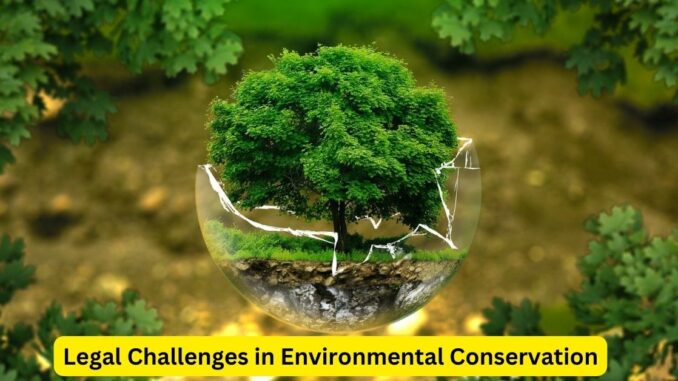
As the world grapples with pressing environmental concerns, legal frameworks play a pivotal role in shaping conservation efforts. Environmental conservation involves navigating a complex web of legal challenges that span across international, national, and local levels, encompassing various issues and complexities.
Biodiversity Protection stands as a critical aspect of environmental conservation. Legal frameworks are essential in preserving and protecting endangered species, habitats, and ecosystems. Laws such as the Endangered Species Act in the United States or international agreements like the Convention on Biological Diversity aim to safeguard biodiversity.
Natural Resource Management requires robust legal mechanisms to ensure sustainable utilization. Regulations governing water resources, forests, fisheries, and minerals aim to balance resource extraction with conservation, often necessitating complex legal frameworks to manage competing interests and ensure environmental sustainability.
Climate Change Mitigation and Adaptation demand legal solutions at both global and local levels. International agreements like the Paris Agreement set targets to reduce greenhouse gas emissions, while local regulations aim to promote renewable energy, regulate emissions, and incentivize climate-resilient practices.
Land Use Planning and Zoning Regulations play a crucial role in environmental conservation. Laws governing land use, zoning, and spatial planning aim to protect sensitive ecosystems, prevent urban sprawl, and promote sustainable development while preserving natural areas.
Environmental Impact Assessment (EIA) laws are fundamental in assessing the potential environmental consequences of proposed projects. EIAs help evaluate the impact of developments on the environment and guide decision-making to minimize negative effects, ensuring sustainable development.
Waste Management and Pollution Control require stringent legal frameworks. Regulations governing waste disposal, recycling, air and water quality standards, and emissions control aim to mitigate pollution and safeguard environmental health.
International Cooperation and Treaties are crucial for global conservation efforts. Treaties like the Convention on International Trade in Endangered Species (CITES) foster international collaboration in protecting endangered species and regulating trade in wildlife.
Legal Enforcement and Compliance mechanisms are essential for effective conservation. Robust enforcement of environmental laws, penalties for violations, and ensuring compliance among industries and individuals are crucial to deter environmental degradation.
Indigenous Rights and Environmental Justice intersect in conservation efforts. Respecting indigenous rights, traditional knowledge, and ensuring equitable participation of marginalized communities in decision-making processes are crucial for ethical and effective environmental conservation.
In conclusion, legal challenges in environmental conservation are multifaceted and require comprehensive approaches. Effective conservation efforts demand the development and enforcement of robust legal frameworks that balance conservation needs with socio-economic development. Collaborative efforts among governments, organizations, communities, and legal experts are crucial to address these challenges and ensure a sustainable and thriving environment for future generations.
Leave a Reply